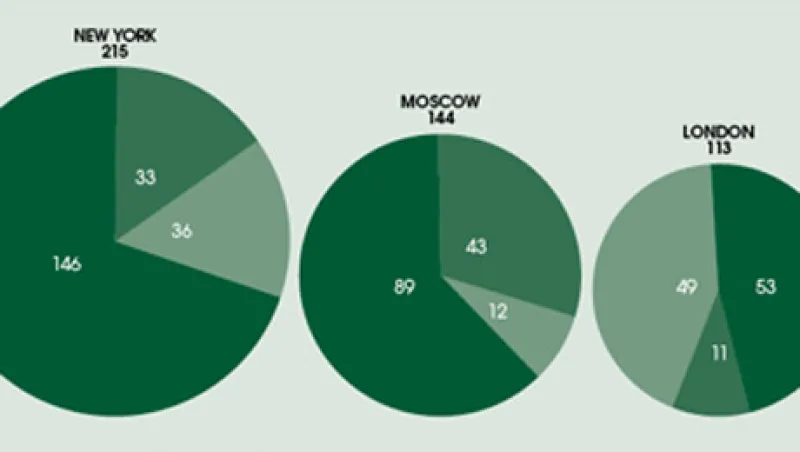Some investors fear that a new market bubble is building — and this time it's made of carbon. Last November, Oakland, California–based shareholder advocacy group As You Sow filed a resolution asking U.S. coal and natural-gas producer Consol Energy to disclose the possible financial damage if yet-unwritten climate change laws deemed some of its fossil fuel reserves unburnable. Soon afterward sustainable-investment firm Boston Common Asset Management similarly targeted New York–based JPMorgan Chase & Co. and Pittsburgh's PNC Financial Services Group.
"We asked the companies to look more closely at how their own investment portfolios and lending and financing processes had embedded greenhouse gas emissions," says Steven Heim, director of shareholder engagement and environmental, social responsibility and corporate governance research at $1.9 billion Boston Common. "We also asked them to report on what the risk to shareholders is, because of the potential for stranded assets."
About 20 percent of shareholders supported the Consol and PNC filings. Boston Common withdrew the JPMorgan Chase resolution when the bank pledged to launch an internal study of its fossil-fuel-related activities. Boston Common and As You Sow trace their interest in carbon to research by Carbon Tracker Initiative, a London–based nonprofit that seeks to mobilize the capital markets to fight climate change. In a report titled "Unburnable Carbon 2013: Wasted Capital and Stranded Assets," it contends that to limit the rise in global temperatures to 2 degrees Celsius between now and 2050, only 20 percent of the world's fossil fuel reserves can be extracted and burned.

Unless this carbon "budget" becomes part of financial modeling and investment decisions, Carbon Tracker concludes, investors are exposing their portfolios to a major risk: a plunge in energy companies' stock prices if governments impose limits on carbon. Using that same carbon budget, a recent report by London–based HSBC Holdings found that the U.K.'s BP would be hardest-hit among oil companies, with 25 percent of its reserves left unburnable.
Carbon Tracker produced its report with the Grantham Research Institute on Climate Change and the Environment, at the London School of Economics and Political Science. The institute is partly funded by Jeremy Grantham, co-founder of $110 billion, Boston–based asset manager GMO and a vocal critic of the fossil fuel industry. "We want this sort of thinking to work its way through the financial system," says James Leaton, Carbon Tracker's research director.
In March, London–based credit analysts at Standard & Poor's published their own report on what a tight carbon budget would mean for oil companies' ratings. It determines that "financial models that use past performance and creditworthiness may be insufficient to guide investors looking to understand the possible effects of future carbon constraints on the oil sector." But co-author Simon Redmond stresses that S&P isn't about to adjust ratings. "The reason this scenario, with a meaningfully declining oil price, is not the base case behind all of our oil and gas ratings today is because we don't believe that's the most likely scenario over the next five years," he says.
Steven Waygood, head of sustainability research at London–based Aviva Investors, says that his firm's investment horizon is typically three to five years and that it's not prudent to alter its portfolio before countries such as the U.S. signal that they'll introduce climate change legislation. Investors would do better to lobby governments for regulations "so they?ll make fossil fuels less profitable," Waygood says.
The time to act on a potential carbon bubble is now, argues Nathan Foley-Mendelssohn, an analyst and portfolio manager at Boston Common: "We think it's worth being worried about, and it's particularly prudent to be worried about it when the market is not." • •






